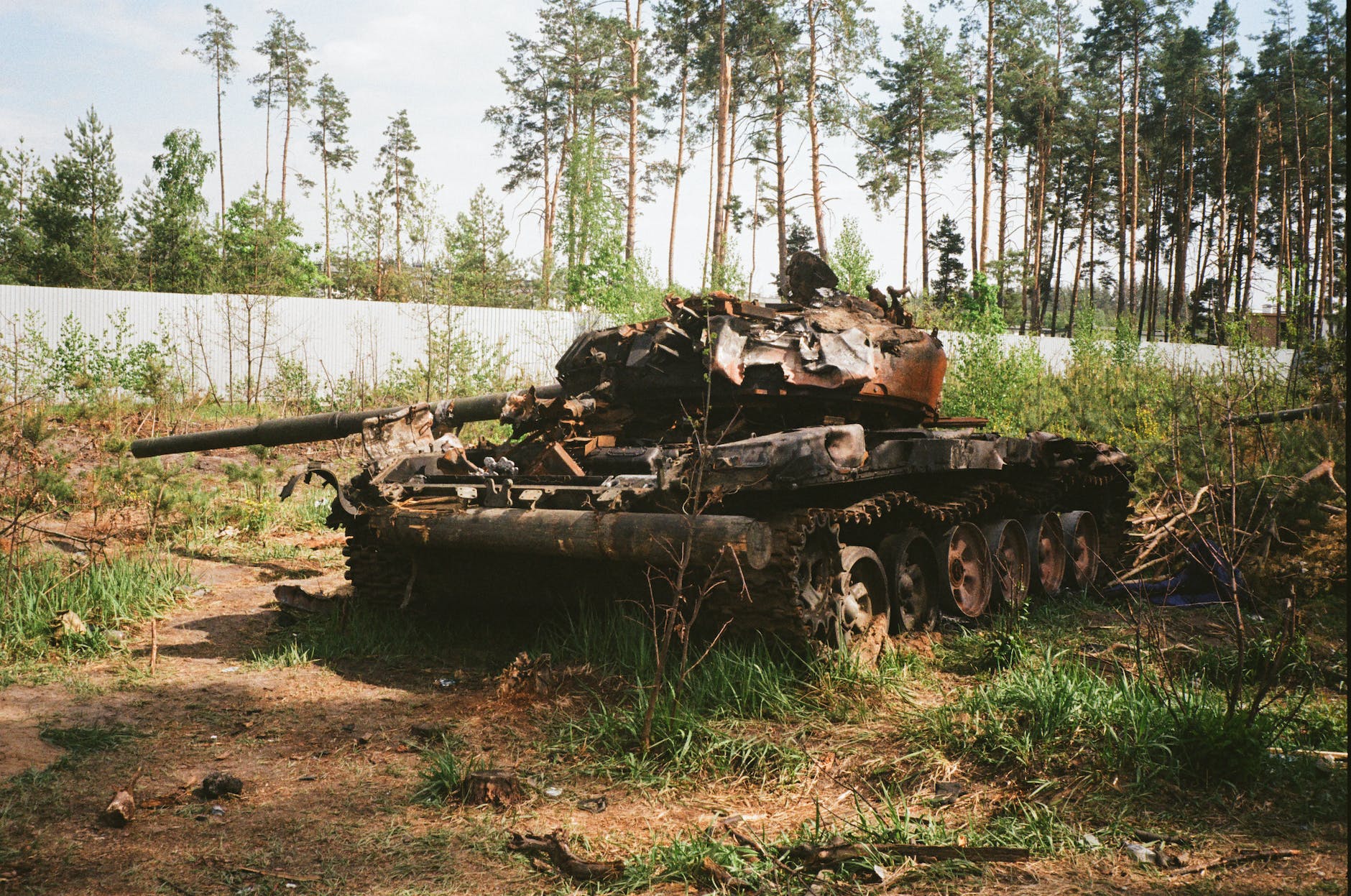No One Knows, So We’d Better Start Imagining
July 26, 2023
Some 2500 years ago, a ruler of a great kingdom, Croesus of Lydia, saw a threat to his regime arising on his border. A new leader, Cyrus, had already created an empire that dwarfed Lydia, the Achaemenid Persian empire. Croesus, therefore, had a decision to make in the early 540s BCE. Should he sit tight and hope that the crisis passed? Or should he attempt to push back against this new and threatening force?
The forthcoming book Fatal Certainty tells what happened next.
* * *
…[L]ike his forefathers, he faced a decision of huge consequence, without any possibility of achieving anything approaching certainty. But he also needed his own people to believe that he had not made his decision before exhausting all avenues of inquiry. …[H]e decided his only alternative was to get a judgment from the various gods of the ancient world, via their mouthpieces, the many oracles.
But Croesus was of an inventive, almost modern, rationalist cast of mind, and he decided he needed to improve his odds. So he set up an experiment to ensure he would get the best possible advice. According to legend (and Herodotus), Croesus tested all the famous oracles of the ancient world with the very concrete question, “What am I doing now?,” timed to his representatives’ arrivals, exactly one hundred days after their dispatch.
The Oracle of Delphi answered, in unwontedly concrete fashion (as it appears to us now, through the filter of selective history), to this unwontedly concrete question, that he was cooking turtle and lamb in a bronze pot. For better or worse, Croesus decided that Delphi had given him the best response. So he had his representatives put another question to the Pythia, the female oracle of Apollo at Delphi: should he invade the neighboring Persian empire? Again according to Herodotus, the oracle responded:
…ἢν στρατεύηται ἐπὶ Πέρσας, μεγάλην ἀρχὴν μιν καταλύσειν.
“If he wages war against the Persians, a great realm will be dissolved.” (Diodorus Siculus relates the oracle as saying “If King Croesus crosses the Halys River, a great empire will be destroyed.”) Croesus interpreted this to mean that he would be victorious.
In the event, of course, hubris was punished. The empire that was destroyed was his own. …Later generations of Greeks, rather than faulting the Pythia, the oracle of Delphi, for being either wishy-washy or duplicitous, faulted Croesus for his arrogance in assuming that the empire in question would not be his. There seemed to be a societal predisposition to hold the oracle harmless and maintain its reputation, rather than to admit that the oracle had been wrong (or even corrupted) on occasion.
As we shall see, this attitude toward prognosticators – seeking explanations for predictive failures that preserve faith in the method, and even often in the particular erring “seer” – has continued to this day.
* * *
We like to think we have advanced far beyond the “ignorant” peoples of ancient times. We have satellites, GPS, sensors, aircraft, and networked computers.
But there is one area in which we have hardly advanced at all, and that is in our ability to anticipate the full range of plausible future outcomes, when dealing with intersubjective realities such as societies, economies, financial markets – and war.
There are aspects of war that are amenable to hard-headed numerical analysis. Numbers of aircraft; ammunition stocks; numbers of soldiers, sailors, aviators, support personnel. But even these quantities are often lost in “the fog of war.” And they are often not the most important variables at play – merely the most objectively quantifiable.
The Russian invasion of Ukraine demonstrates how little progress we have made in anticipation of possible outcomes of wars. Vladimir Putin did not even make the futile attempts that Croesus did to seek the opinions of others before invading. He merely assumed that his far larger armed forces, depleted of leadership by Stalin-1930s-style purges of anyone who looked like he (we can safely assume the “he” in the case of the hyper-macho Russia of Putin) could be a threat to supplant Putin, and depleted of effectiveness by endemic corruption, cynicism, incompetence, equipment shortages, and dishonesty at all ranks, would roll right over the smaller Ukrainian military. He also assumed, after his previous land grabs in Georgia and Ukraine, that the West would not do anything to stop him.
In the event, something quite different happened. We cannot yet say that “the empire that was destroyed was his own.” But Russia has certainly not “won,” and after the Prigozhin mutiny, Putin has been exposed as far weaker than anyone expected.
So what will happen now?
We don’t know. In fact, I can quite confidently say that no one knows. Our TV screens are full of ex-generals and “Russia experts” telling us with perfect confidence exactly what will happen. But none of these people actually do know. That has not caused too many of them to be fired by their cable networks. They’re still “experts,” right? Who else are you going to hire? Amateurs?
Will one of these experts be seen later to be extremely prescient, as events roll out? Without a doubt. Someone out there right now, probably a fairly unknown academic or junior military officer, is laying out a series of events that will be very close to what will actually happen And their career will skyrocket as a result. But will they have known, or will they simply be lucky? It will be impossible to tell – which is essentially the same thing as saying “We cannot rule out that they were lucky.”
So…will Russia ultimately conquer most of Ukraine and impose its will on the Ukrainian people, creating a far larger refugee crisis and burdening the West?
Will the U.S., after the election of a different president, suddenly withdraw all support for the Ukrainian regime, dooming its hope for independence and forcing them into a humiliating negotiated peace with Putin?
Will Putin be overthrown, allowing a new Russian ruler to negotiate a withdrawal from Ukraine as the USSR did from Afghanistan in 1989, and allowing Russia to escape sanctions and re-engage with the world economy?
Will Ukraine recapture the territory it had lost to the 2022 invasion, then negotiate an “honorable peace” under pressure from its allies who want to end their wartime assistance?
Will Ukraine, as the Putin regime buckles, actually move beyond the 2022 effective borders, to retake all territories lost in 2014?
Each of these outcomes has been mooted by one “oracle” or another as inevitable at some point since the war began last year. But the terrifying truth is that none of them knows what will be. This is not astronomy, in which results can be predicted with certainty. It is war, and no oracle can help.
Which means that no matter what strategy a war leader employs, he or she should be prepared for the full range of plausible alternative scenarios, particularly those at variance with the one that strategy was designed to bring about. That is rigorous imagination: mapping out the full range of plausible futures, and preparing for that full range.
Neither Croesus nor Putin did that before their invasions. One relied on an unreliable oracle; the other seems to have deemed himself an oracle. But there are no reliable oracles for the world of the intersubjective. The future is radically unpredictable in events involving human beings and their decisions. Or, as an inscription read at Delphi:
ΕΓΓΥΑ ΠΑΡΑ Δ’ΑΤΗ
(rough translation: “Certainty brings ruin”)



